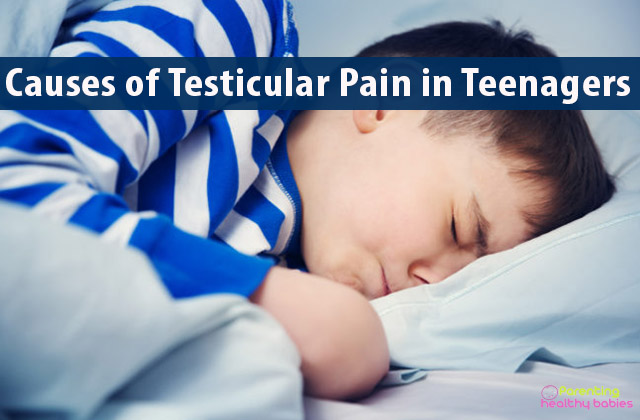Teenage is a vulnerable time when unhealthy habits if adopted, can grow in life. The common teenage issues are anger, mental, social, and behavioral issues. In order to tackle these issues, one must establish good and friendly communication with the teen.
Why do teenagers face problems?
Teenage is not an easy time and dealing with important hormonal and physical changes can leave one exhausted and frustrated. Parent-teenage conflicts that cause insecure and unstable feelings have a linear association with pubertal maturity. Understanding and dealing with these conflicts positively could help teens be more responsible and social.
11 Most Common Teenage Issues And Their Solutions
Physical changes
Puberty is the period when their body will undergo rapid changes which are mediated by hormones.
- The development of full breasts in girls can be awkward in the beginning. Girls may start to feel conscious about it.
- Change of voice and appearance of facial hair in boys is perhaps the most prominent change that takes place during teenage.
- Acne is one of the major problems.
- Muscle gain sometimes leads to excessive body weight in teens.
- The growth of pubic hair in girls and boys.
- Body odor becomes evident.
- Girls start their periods.
Solution – the best way to prepare yourself is to be aware of these changes.
- Explain that it is normal for the body to change and every teenager goes through it.
- Help them adapt to these changes, acknowledge the change, and help them accept it.
- Enable them to stay healthy and fit through a nutritious diet and exercise.
Emotional changes and problems
Hormones affect teenagers both physically and emotionally.
- Teenagers are often confused about their role and are torn between the responsibilities of growing up and desires.
- They tend to feel overly emotional. Anything and everything can make them happy, excited, mad, or angry.
- They are vulnerable to crying.
- Mood swings are common teenage issues among both boys and girls.
- Bodily changes result in self-consciousness.
- Teenagers who hit puberty early may even feel weird.
- Feelings of inferiority or superiority may arise at this time.
- Teenage is the age when sexual feelings arise. Feelings and thoughts about sex can trigger a sense of guilt.
Solution – teenage is an emotional roller-coaster ride. And it is normal.
- Assist them to take care of themselves. Tell the teenagers that it is okay to feel the way.
- Encourage exercise as physical activity helps keep the serotonin levels up.
- Let talk and listen by giving advice.
- Share the experience of puberty and talk about it.
- Indulging in a creative activity can help them channelize the emotions.
Behavioral changes
Overwhelming emotions can lead to impulsive behavior, which can be harmful to the teen as well as others.
- Teenage can be an age of independence. It can give rise to questioning the parent’s rules and standing up for what is right. This behavior can be seen as argumentative and stubborn.
- Significant developmental change in the brain makes teens moody, tired, and difficult to deal with.
- The raging hormones in teenage boys can even push them into physical confrontations.
- Teenagers may try new things, and take risks resulting in careless behavior.
- Sometimes, peer pressure and the need to fit in can make to behave in a certain way or develop certain habits that are hard to break.
- Teen’s dressing, hairstyle, and sense of fashion can also change, mostly to something that parents may not approve of.
- The most troubling behavior is perhaps the teen hanging out with the wrong group and adapting to a dangerous lifestyle.
- Lying is one of the most common issues. They may lie to avoid confrontation with parents or out of fear.
Solution – behavioral problems can be tough for parents to tackle and require a little extra effort.
- Gaining the child’s trust is important. Talk to them and listen without judging or criticizing as it could worsen their behavior.
- Love and encourage them to be honest.
- Help and support are needed by teens for talking about feelings.
- Intervene if falling in bad company.
Substance use and abuse
Teenagers can be easily swayed to the wrong side. Substance abuse is one of the biggest teenage issues that parents need to deal with.
- Peer pressure is one of the significant factors that drive teens to take up smoking and drinking or to do drugs.
- The tendency to take risks encourages most teens to try smoking or drinking even before the legal age. These habits start with thrill but can become a habit.
- When someone drinks or smokes at home, they become the teen’s role model.
- Poor self-esteem and the need to be cool can push them to smoke or drink.
- Easy access to substances like cigarettes, alcohol, drugs, and anabolic steroids can increase the temptation to try illicit substances.
Solution – make sure to keep the teen away from substance abuse.
- Keep an eye and look for erratic behavior like changes in appetite, sleep patterns, and mood.
- Do not spy or accuse them of any wrongdoing. Encourage teens to be honest and share their concerns or problems with their parents.
- If the teen is not ready to talk then the doctors can ask confidential questions about abusing any substances. Avoid doing drug tests as it may come across as confrontational and threaten the child.
- Get appropriate treatment.
Educational challenges
School is not about fashion, friends, or parties but is important for educational activities.
- Pressure to perform academically and obtain admission can be stressful and make the teenager moody.
- Juggling schoolwork, extra-curricular activities, and chores at home can be tiring.
- Distractions at school can result in a poor academic performance which will add to the pressure.
Solution – support teen’s aspirations for education as encouragement is needed to do well.
- Cut down household chores to enable focus on the school projects when needed.
- Nutrition and exercise can help get the strength and endurance to get through the hectic high school period.
- If the teen is getting overwhelmed with daily activities, cut down on a few tasks because they don’t have the capacity of adult and get tired soon.
Heath problems
Teens without proper nutrition and healthcare are susceptible to illnesses.
- Teens have a hectic schedule. They hop from one activity to another with little time to eat or rest properly. Unhealthy eating habits are one of the important teenage issues that prevent them from getting the nutrition needed.
- Consciousness about the body can lead to eating disorders. They can be worrying about weight and appearance.
- Stress can also lead to loss of appetite and sleeplessness.
- Unhealthy eating habits and a less active lifestyle could also lead to obesity.
Solution – parental guidance can help abate health problems in teens and help maintain a healthy lifestyle. Lead by example and encourage the teen to eat healthy food, exercise right, and sleep on time.
- Ensure to get nutrition through the meals and give a balanced diet.
- Be there emotionally and physically to deal with disorders.
Psychological problems
Mental health disorders are common like anxiety, depression, and mood disorders. Social phobias and panic disorders are common in teenagers.
- Teens may have self-esteem or confidence issues. The feelings of inferiority or superiority often arise from the appearance and acceptance of the body’s skin color, beauty, and figure.
- Poor performance in academics and low IQ can also demotivate and develop an ‘I am not good enough’ attitude towards life.
- Depression is one of the most common psychological problems associated with teens.
- Stress and pressure can create anxiety-related issues while mood swings can lead to conduct disorder or opposite defiant disorder.
- Eating disorders are also psychosomatic.
Solution – while moodiness and temper tantrums are normal but identifying symptoms of psychological problems in teens is not easy and needs the eye of an expert.
- Talking about the problems and maintaining a healthy lifestyle can prevent the onset of depression.
- If the teen is overly moody and cynical, it is time to intervene and seek professional help if necessary.
- Sometimes, teens may be unhappy at home but happy outside. Talk to the friends and teachers about the mood and disorientation.
- Do not brush away the feelings as can make things worse.
- Encourage communication.
Social problems
Problems like dating and relationships. Attraction to the opposite sex and development of reproductive or sexual organs.
- Teens want to have an identity in their social circle and so they tend to look up to role models. They are very active on social media.
- Teens need time to understand and get comfortable with their sexuality. They start feeling weird things towards others.
- The teen might date and keep it hidden from home.
- Competition is another important aspect of a teen’s social life. They may compete with peers in anything and everything. The spirit of competition speaks a lot about the perception of self and whether one has positive or negative self-esteem.
- Sexual feelings and thoughts of sex may seem wrong to teens because of which may feel guilty.
Solution – dating, romance, and sex are delicate issues and should be approached with care.
- Let the teen explore the outside new world and discover things.
- Try to share things with teens.
Sexual health
Lack of sex education can lead to unplanned pregnancy and STIs. The development of secondary sexual characters gives rise to new feelings and push to experiment.
- Teens may experience their first kiss, intimate dance with partners, and secret make-out sessions.
- Without proper guidance, teens become sexually active and result in unwanted teenage pregnancies.
- Unprotected sex can also lead to sexually transmitted diseases like HIV.
Solution – have a talk with the teen as they may be learning about sexual health and reproduction at school. It’s your duty as a parent is to make them understand about sex.
- Hormonal changes in teenagers may make them act impulsively, resulting in unprotected sex.
- Awareness is the only way to prevent early pregnancies and STI’s.
Addiction to cyberspace
The advent of social media has changed the way of interaction and affected lifestyle.
- Teen may spend hours on the phone, texting, talking, or simply playing.
- Addiction to the internet tends to result in fewer friends and a less active social life. Addicted teens have solitary lives and are happily browsing the internet for hours.
- Addiction to cyberspace also cuts short physical activities resulting in an unhealthy and sedentary lifestyle.
- Internet addiction is one of the important teenage issues that adversely impact academic performance.
Solution – don’t assume the teen is addicted to the internet just because of spending time on the computer. Maybe they are doing productive things other than surfing the net.
- Don’t say no to the internet as that can make them adamant. Instead, talk about the concerns and help work on things that do not require a computer.
- Can use parental controls but that may not be taken well by the teen. So guide the teens but never impose a decision on them.
- Enroll in activities that encourage interaction with others. Have family time to decrease time on the computer.
- Have some cyber rules and boundaries for everybody at home. Limit the use of the phone to few hours a day.
Aggression and violence
Boys start to develop muscle, grow tall, and have a coarser, manly voice.
- Boys can get into fights at school.
- Bullying is also seen in school.
- Because of bad company boys can be drawn to acts of violence, vandalism, and aggression.
- Impulse acts of violence can lead to serious consequences including death.
Solution – teens tend to imitate what seen at home.
- Teach the teen to be kind and considerate. Nurturing relationships at home can help to become less aggressive.
- Prevent access to firearms and alcohol early to prevent violence.
- Teach life skills and the importance of compassion.
- Avoid exposure to violent stories, games, or movies.
Conclusion
Parents play an important role in their child’s life and teenage issues are an important part of it. Talking about the problems and solutions can have a positive impact. Understanding the feelings and giving suggestions could reduce conflicts rather than being judgemental or rude.
References –
- teenage problems and solutions (allegiance-educare.in)
- common teenage problems and their solutions – teenage issues (buildupyouth.com)













